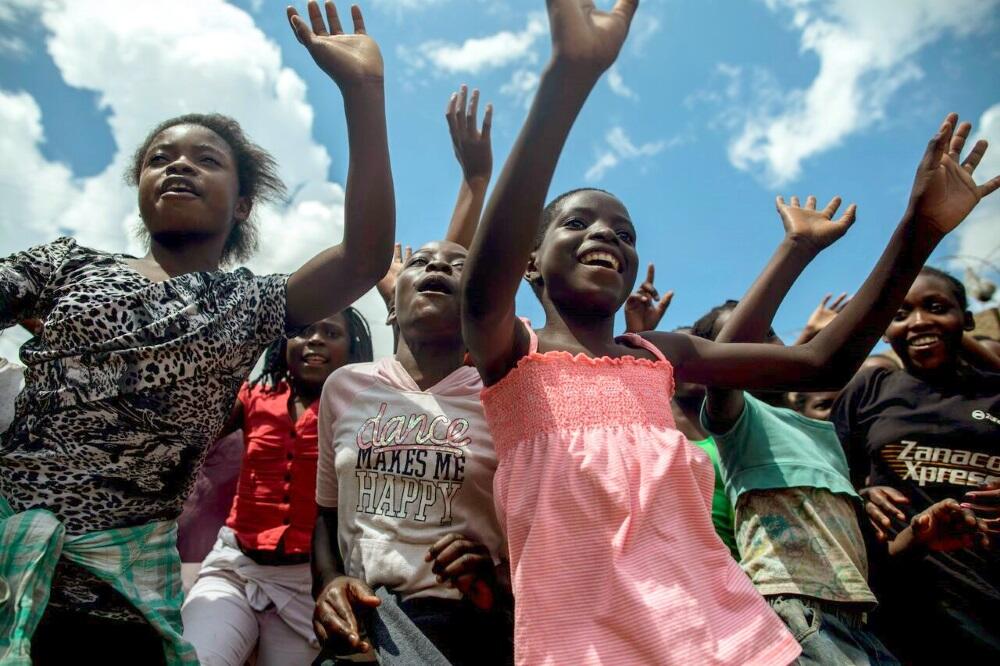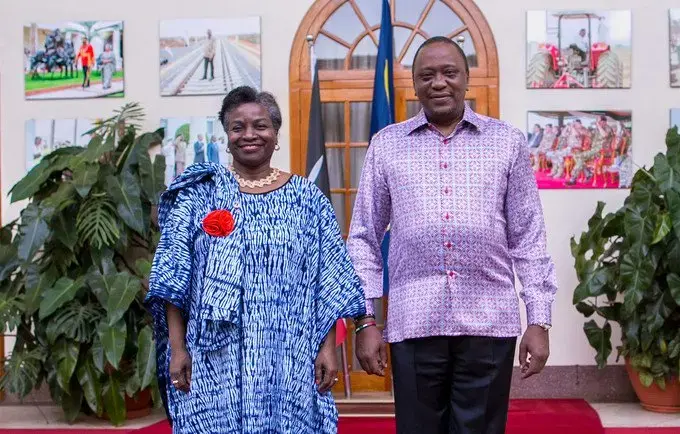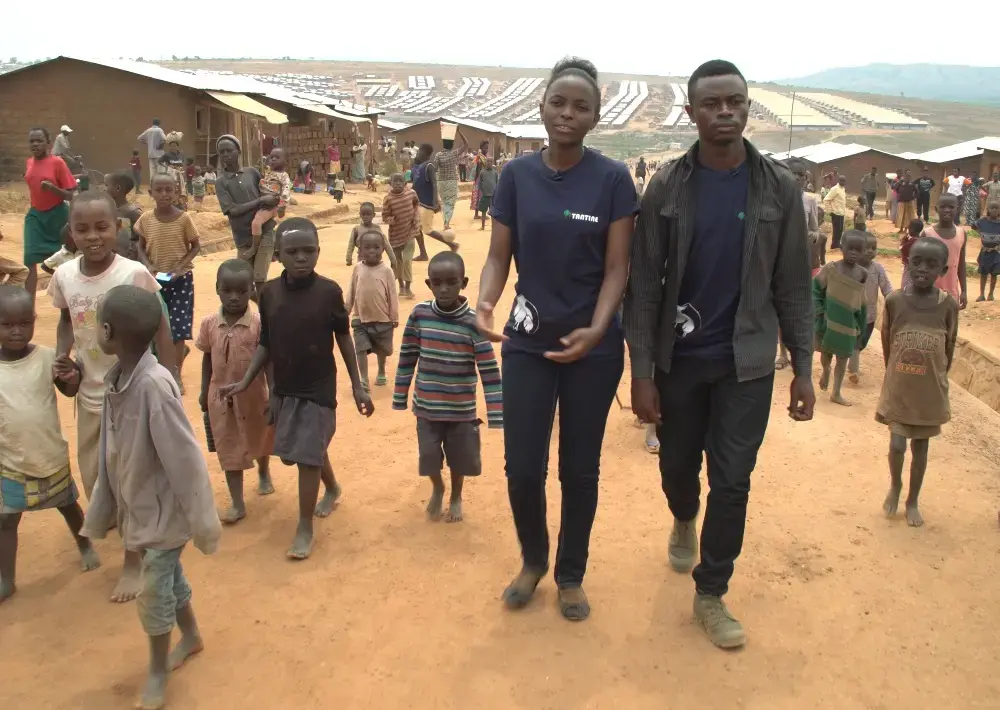ACCRA, Ghana, Addis Ababa Declaration on Population and Development Five-Year Review—Africa needs the contribution of its civil society to drive its 2063 transformation agenda. As part of the Five-Year Review of the Addis Ababa Declaration on Population and Development (AADPD) from 2-5 October, 160 representatives of civil society organizations (CSOs) in Africa gathered for the two-day CSO Pre-Conference to add their voices to the process.
The objectives of their gathering were to:
- Review progress on implementation of the AADPD with a focus on gains, gaps, and lessons learned using the Africa Population and Development Index as a basis for this;
- Consolidate key messages that will be shared with AU Member States on the way forward for the implementation of the AADPD;
- Review the roles of CSOs as collaborative agents in implementation of the AADPD and make recommendations on how to better support implementation;
- Build the capacity of CSOs on the African Population and Development Index.
The bold gains made in the transition from the MDGs to the SDGs [...] will only be achieved if we work together, with renewed conviction, to change the narrative.
Population and development central to sustainable development
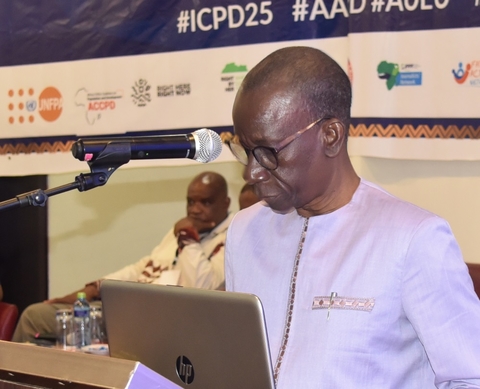
Kante, UNFPA Deputy Regional Director for West and Central
Africa. © UNFPA /Habibou Dia
CSOs are important in ensuring accountability, both of governments and civil society actors, said Dr. Mamadou Kante, UNFPA Deputy Regional Director for West and Central Africa.
“The bold gains made in the transition from the Millennium Development Goals (MDGs) to the Sustainable Development Goals (SDGs), including the targets on access to sexual and reproductive health and rights; gender equality and women’s empowerment; the commitment to leaving no one behind and the conviction that people must lie at the heart of all our sustainable development efforts, will only be achieved if we work together, with renewed conviction, to change the narrative,” he said.
The AADPD was adopted five years ago in recognition that population and development is central to the forward march towards sustainable development, he said. Since then, it has been agreed by key African Union and United Nations structures that the reviews of Agenda 2063 and the 2030 Agenda for Sustainable Development shall take into consideration the outcomes of major UN conferences at the regional level, such as the AADPD. It is therefore critical that civil society continues to play its role as a watchdog for accountability and for results.
Investing in youth is the right – and smartest – thing to do
As 66 per cent of the population in Africa is under 24 years old, investing in youth is the right – and smartest – thing to do. It is timely to address population dynamics in Africa, especially young people, as this continent will be the most youthful in the world on the eve of Agenda 2063.
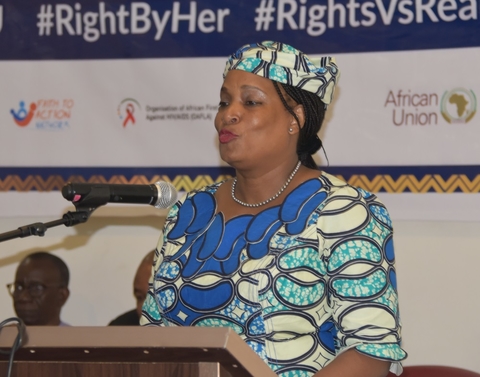
resources that are earmarked to improve the lives of Africa’s citizens,”
said Dr. Margaret Agama-Anyetei, Head of the African Union
Commission Division for Health, Nutrition and Population.
© UNFPA /Habibou Dia
CSOs are important for achieving the continental transformation goals enshrined in Agenda 2063, the Future We Want, said Dr. Margaret Agama-Anyetei, Head of the African Union Commission (AUC) Division for Health, Nutrition and Population.
Africa is committed to strengthening governance as well as political, economic and social commitments to advance equity and human capital development, and to transform the socio-economic conditions of African citizens, she said.
“Africa’s CSOs have a critical role in monitoring the use of public resources that are earmarked to improve the lives of Africa’s citizens,” she said.
Amid efforts to strengthen partnerships and engage different constituencies that address sexual and reproductive health and rights (SRHR), adolescents and young people, gender and population issues in the region, UNFPA is committed to working with regional and global partners to ensure that the space for civil society to engage effectively is assured, as we work towards championing ICPD as a centerpiece of the achievement of the SDGs and as a people-centered sustainable development agenda and Agenda 2063.
On a continent where wealth is unevenly distributed, where the youth bulge is a usual occurrence, where migration and rapid urbanization are unfolding, and where women’s rights – including sexual and reproductive health (SRH) – are far from being realized, the AADPD accentuates the need to respond to these existing and emerging challenges. It recognizes the role of civil society organizations in the formulation, monitoring and evaluation of population and development policies and programmes, including devising strategies for achieving universal access to SRHR, said Sam Ntelamo, International Planned Parenthood Federation (IPPF) Resident Representative to the African Union.
It is of paramount importance that the gains of the negotiations of the Addis Ababa Declaration are jealously guarded, by reflecting on what has been achieved since its inception, in order to take stock of the implementation of the Declaration and produce tangible recommendations, Mr. Ntelamo said.
The meeting gave CSOs an opportunity to revisit the ideals laid out in the 1994 ICPD and evaluate the extent to which Africa is progressing in its implementation of the Addis Ababa Commitment, and to make recommendations that can be considered by member states.
By Haddy Jonga

